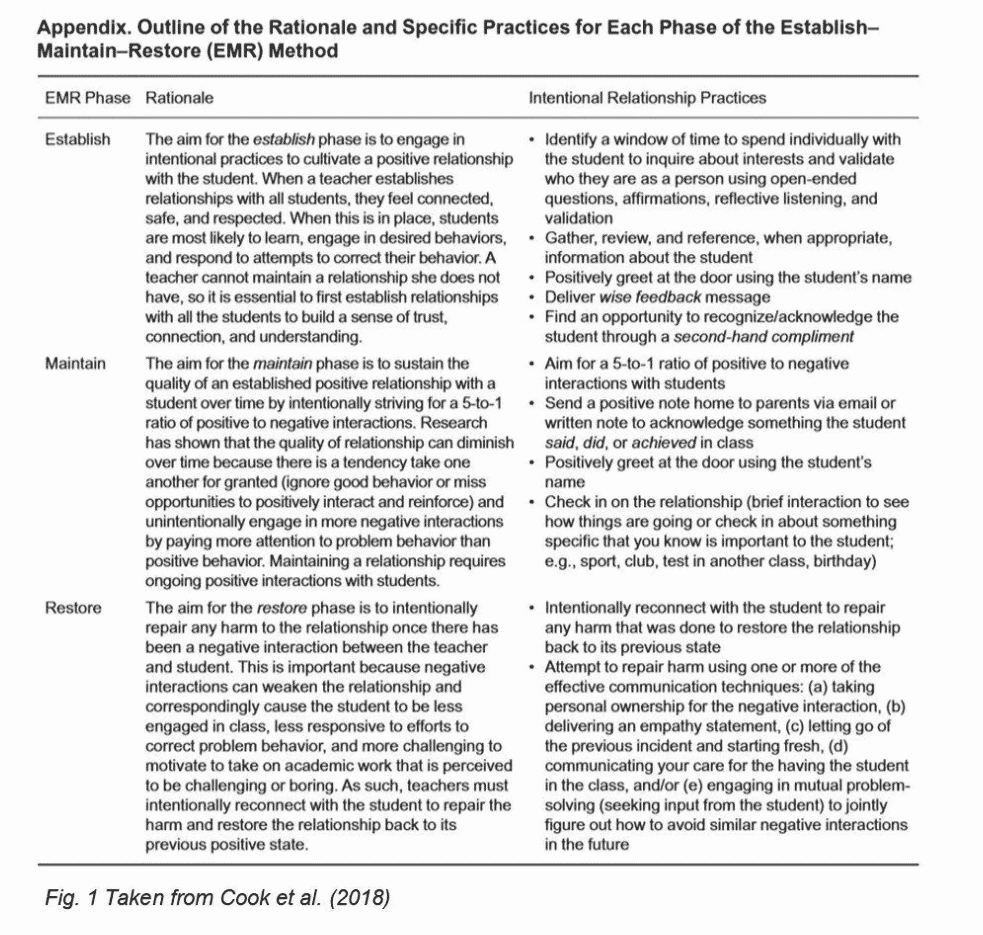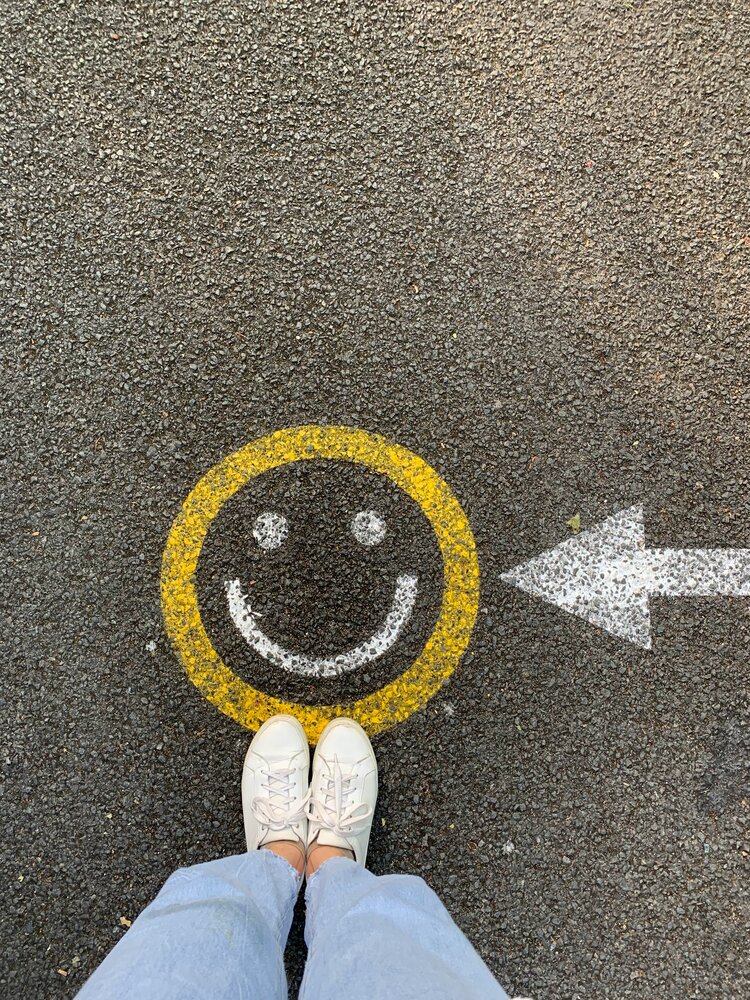Building Relationships

Schools are exceptionally social environments. In a day you, as a secondary teacher, might experience 1000s of social interactions between tutees, students, colleagues, parents, non-teaching staff and possibly others.
To be honest it can be emotionally draining and requires a huge amount of emotional intelligence. The relationships we build with our students are a crucial part of this social environment. Whilst many teachers do build them with ease they are rarely considered in training and research in this area is fairly new. The old adage of ‘don’t smile until Christmas’ though probably does more harm than good. It is worth thinking deliberately about how we create, maintain and repair relationships with our students and how these relationships affect well-being.
The Psychology bit
So the research on this is complex and there isn’t much of it. It is impossible to disentangle easily so many variables (e.g. wellbeing, belonging, purpose, self-esteem, academic performance, school engagement) from student-teacher relationships as a result many studies look at correlation, not direct effects. Secondly much research focuses on sub-groups such as children with autism or those from disadvantaged back-grounds.
What the research seems to show (and this is the case from my own research too) is that where there are positive student-teacher relationships, well-being – through a variety of mechanisms is improved for both students and teachers.
What the students say
Students do not separate their learning from their emotions, so if they don’t like a teacher learning will be affected, in the same way that when they feel safe and valued in a classroom they will be more engaged and happy to learn. Students often see teachers as having a unique place in their lives: they are not parents who they see as over emotional or anxious or controlling. They see teachers as relating to teenagers but being able to offer an adult viewpoint, these relationships are important as adolescents make the transition from childhood to adulthood. They are important for reassurance and building confidence.
Deliberately Building Relationships
Many of you will be doing this instinctively but it is probably worth reflecting on how you can improve relationships. Many teachers worry that it requires sharing personal details or being too familiar with students but evidence suggests that this isn’t necessarily the case. Below is a table that lays out a 3 phase approach to relationships:
Establish-Maintain-Restore, which summarises how we should approach student teacher relationships.

In your classroom there are simple things that you can do to build your relationships with students that will not only improve wellbeing but also academic achievement, as I mentioned the research has yet to figure out whether the exact mechanisms behind this but it is a consistent finding (there is some research below you can take a look at if you are interested.
- Put aside a lesson at the start of the year that is focused on relationship building and not on learning the curriculum content;
- Effective and coherent teaching – conveys caring;
- Creating challenging content;
- Facilitating class discussion and student participation;
- Having high expectations;
- Being patient and taking time to ensure every student understands;
- Using contemporary examples or ones that students will relate to;
- Learning names as quickly as possible;
- Checking in with them as the enter the classroom (ask questions);
- Checking in with them if you are concerned;
- Learning about their interests and motivations;
- Be interested in them as a person;
- Being fair (try not to create a sense of ‘picking on’ an individual or favouring individuals – this can be quite subjective so can be challenging);
- Offering praise;
- Be willing to listen to their concerns;
- Show warmth and caring;
I am sure there are more but I hope these are a good starting point. It is worth mentioning the school as a system. There are some systemic issues that mean this can be difficult – for example if you only teach a class once a fortnight or the disciplinary structure in the school has eroded trust between staff and students. But remember you can always be the one teacher that made the difference so don’t give up, you may never even realise the difference you made.







Responses